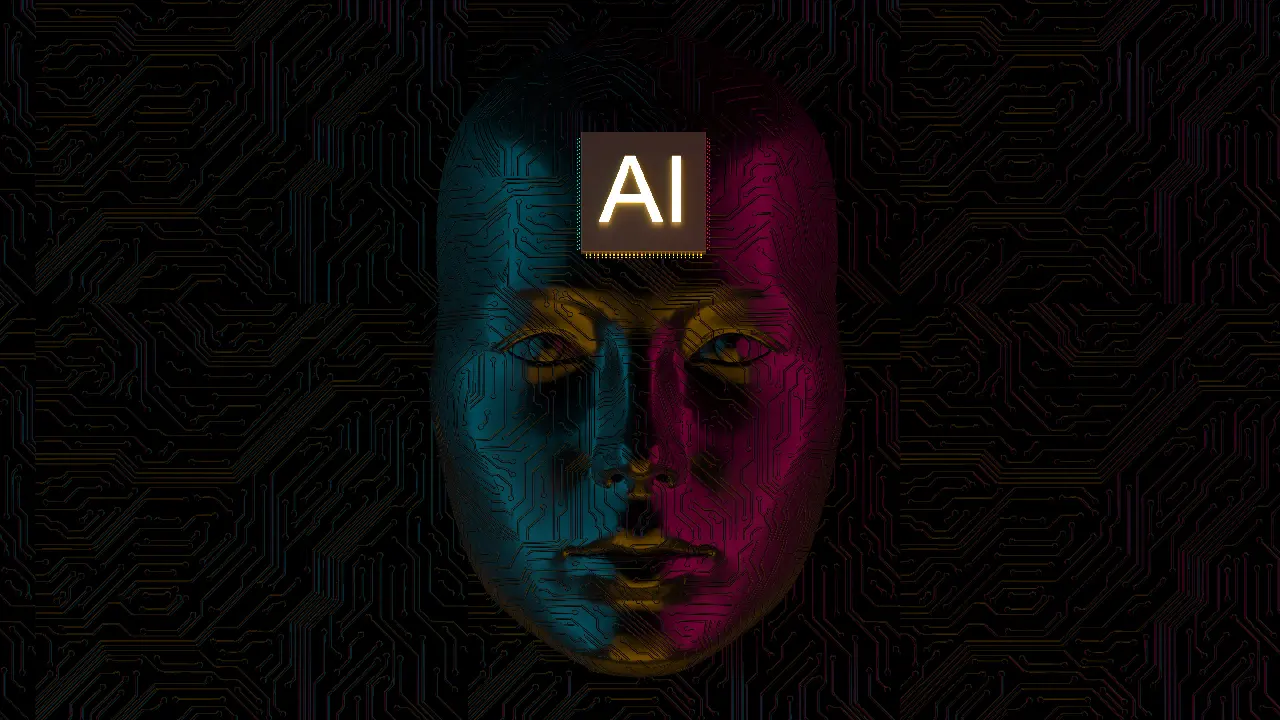Highlights
- Agentic AI emerges as a disruptive force, altering how robots interact with the world and make strategic decisions as businesses and sectors strive for increased intelligence, agility, and efficiency.
- Agentic AI systems have some degree of self-direction, in contrast to classic AI models, which mostly function within preset parameters and need human supervision.
- Across multiple sectors, Agentic AI is catalyzing change by taking on roles once reserved for humans.
The emergence of agentic AI systems that can make sophisticated, autonomous decisions without direct human supervision is causing a significant upheaval in the technology environment. Agentic AI emerges as a disruptive force, altering how robots interact with the world and make strategic decisions as businesses and sectors strive for increased intelligence, agility, and efficiency.
Understanding Agentic AI
Artificial intelligence systems that can act as agents—that is, set objectives, make decisions, and take action on their own—are referred to as agentic AI. Agentic AI systems have some degree of self-direction, in contrast to classic AI models, which mostly function within preset parameters and need human supervision. They can evaluate circumstances, set priorities, and make dynamic adjustments to their plans.
These systems make use of developments in cognitive modeling, reinforcement learning, natural language processing, and machine learning. Their “agentic” nature suggests a degree of autonomy in which AI actively shapes results based on internal models and changing circumstances rather than merely responding to inputs.
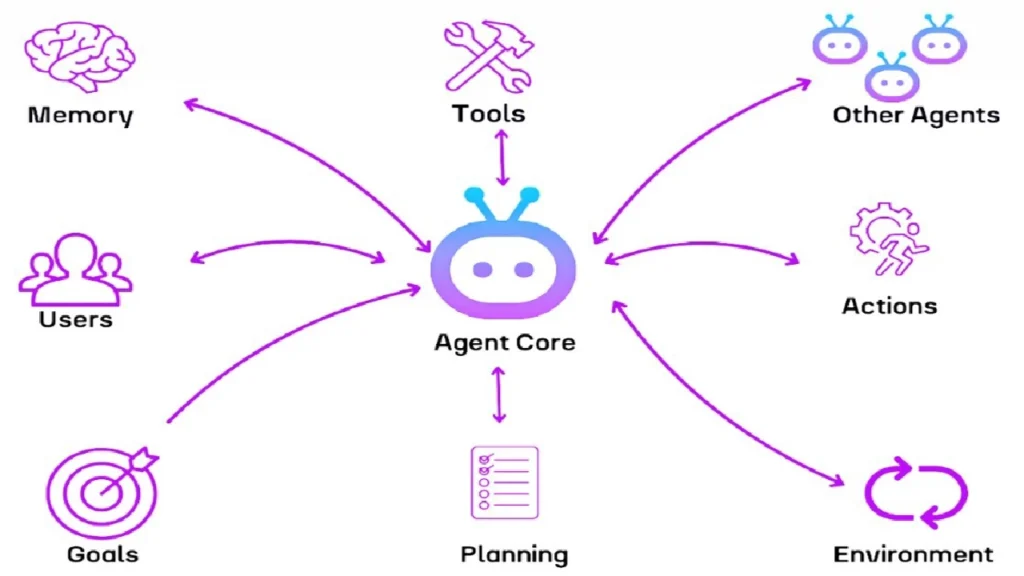
Transforming Industries Through Autonomy
Across multiple sectors, Agentic AI is catalyzing change by taking on roles once reserved for humans:
Medical Care:
Agentic AI is transforming patient management, treatment planning, and diagnostics in the healthcare industry. These days, complex medical data may be automatically interpreted by systems, which can also recommend possible treatments and even forecast illness outbreaks. AI agents, for example, may considerably lower diagnostic errors by analyzing hundreds of radiology images to identify abnormalities more accurately than human professionals.
Finance:

AI bots that are capable of real-time algorithmic trading, risk assessment, and fraud detection are helping the financial markets. These systems enable quicker and more frequently profitable decision-making by autonomously modifying investment strategies in response to market fluctuations. Continuous development without human intervention is also made possible by their capacity to learn from fresh data.
Manufacturing and Supply Chains:
By keeping an eye on the condition of machinery, streamlining production lines, and handling supply chain logistics on its own, artificial intelligence is simplifying manufacturing procedures. In order to ensure resilience and efficiency, intelligent systems can identify possible bottlenecks, reroute deliveries, or modify production schedules in response to unanticipated changes.
Transportation:
One of the most well-known uses of agentic AI is the creation of driverless cars. Drones and self-driving automobiles have to maneuver through complicated terrain, make snap decisions, and adjust to unforeseen situations—all without direct human supervision. Safer roads and more effective logistical networks are anticipated as this technology continues to advance.
Manufacturing and Supply Chains:
By keeping an eye on the condition of machinery, streamlining production lines, and handling supply chain logistics on its own, artificial intelligence is simplifying manufacturing procedures. In order to ensure resilience and efficiency, intelligent systems can identify possible bottlenecks, reroute deliveries, or modify production schedules in response to unanticipated changes.
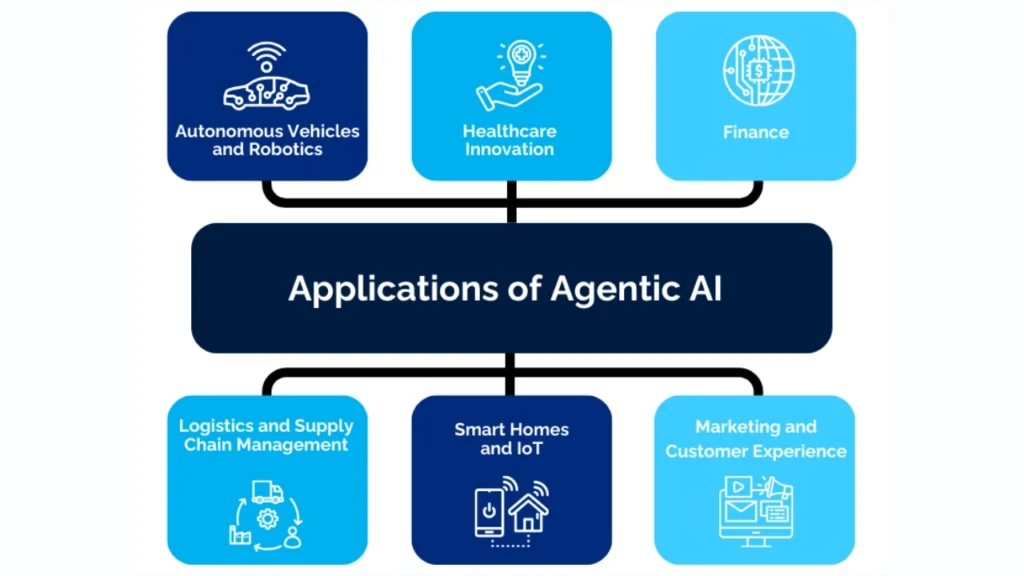
The emergence of autonomous decision-making systems is made possible by several technological pillars
Through trial and error and feedback from their activities, Reinforcement Learning (RL) enables AI agents to discover the best ways to maximize cumulative rewards.
Large Language Models (LLMs): LLMs enable AI systems to comprehend and produce language that is similar to that of humans, facilitating sophisticated decision-making in fields including content production, customer support, and legal analysis.
Cognitive Architectures: These models of thinking, memory, and learning processes, which are based on human cognition, offer a foundation for AI activity that is goal-directed.
Edge computing lowers latency and boosts the autonomy of systems functioning in dynamic situations by allowing AI computations to be performed locally on devices rather than only on centralized cloud servers.
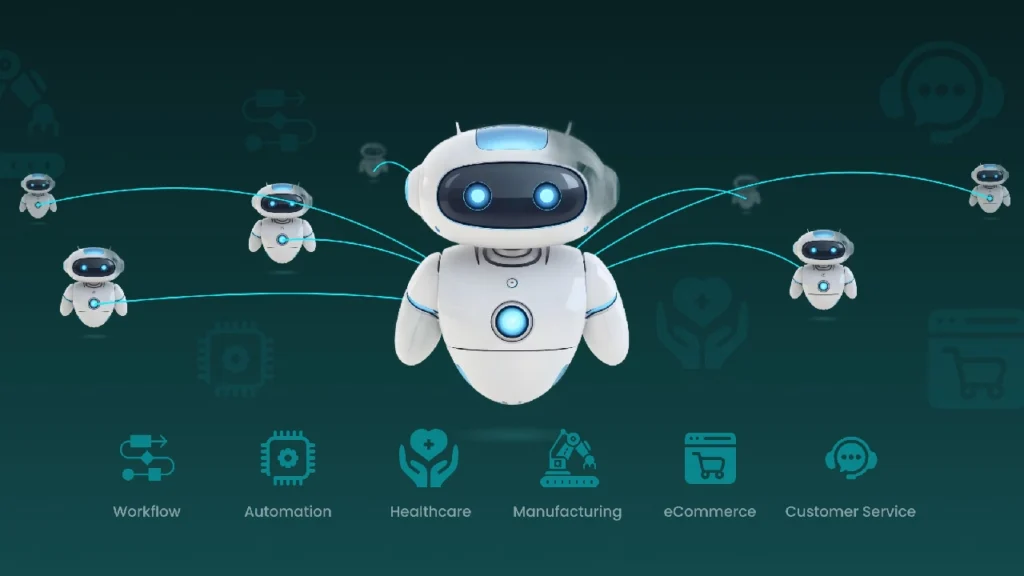
Challenges and Ethical Considerations
Despite the promise of Agentic AI, significant challenges persist
- Accountability: When an AI agent makes a decision that results in harm or error, determining responsibility becomes complex.
- Bias and Fairness: Autonomous systems trained on biased data may perpetuate or even amplify existing inequalities.
- Security Risks: Malicious actors could exploit autonomous systems for cyberattacks or misinformation campaigns.
- Transparency: The “black box” nature of many AI models makes it difficult to understand how decisions are made, raising concerns about trust and governance.
Addressing these challenges requires rigorous regulation, transparent design practices, and continuous oversight to ensure that Agentic AI systems operate ethically and responsibly.
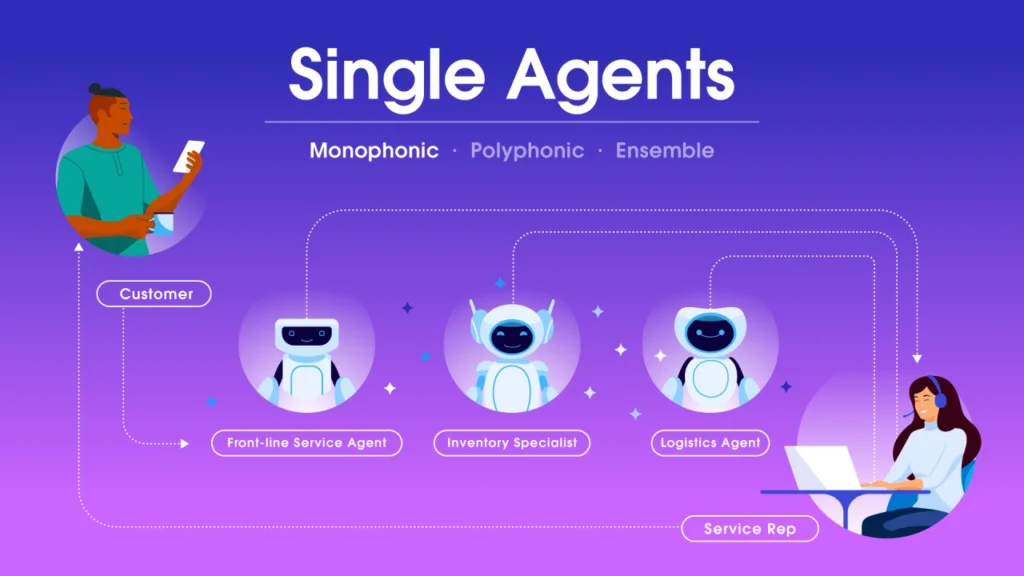
Agentic AI’s Future
Agentic AI suggests that people and intelligent systems will work together more in the future. Instead of completely replacing human decision-makers, agentic AI is probably going to be a strong ally that enhances human capabilities and manages simple or extremely complicated activities that are beyond human capabilities.
A more dynamic and independent technological ecosystem is hinted at by emerging concepts like self-improving systems, which gradually improve their capabilities, and multi-agent systems, in which several AI agents collaborate to solve issues.
In the end, the development of agentic AI is about creating more intelligent, flexible systems that can spur innovation in many facets of contemporary life, not only automating decision-making.
